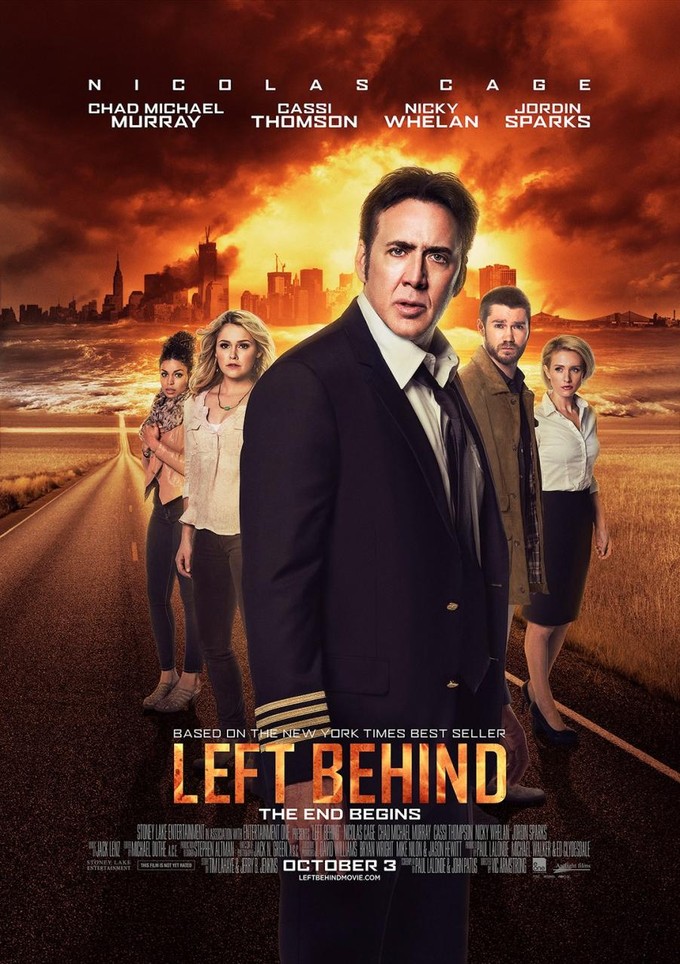Seven More Challenges For Christian Movie Critics and Fans
We are getting more movies similar to Fireproof and God’s Not Dead—Christian-made movies that shake up our assumptions about Christianity and pop culture. We are also hearing more written criticisms of these movies—criticisms that sometimes make just as many wrongful assumptions about how or why Christians enjoy or “use” stories.
It’s a perfect time to challenge ourselves on this topic, no matter what “side(s)” we take.
Here is my favorite question to shape such discussions: What are movies meant to do? But the bigger question under that question is: What are human stories meant to do? And then a still more-foundational question is this one: What is human culture meant to do?
Christians risk assuming that stories and culture are “for art’s sake,” “for evangelism,” “for education,” or “for the culture war,” rather than seek answers in the Bible and its wisdom.
Yet atop that root discussion lie challenges about Christian movies.
Last week I shared seven of them. Here are seven more.
8. Do you remember the characters’ names from the last Christian movie you saw?

J.K. Rowling gives characters names like “Seamus Finnigan” and nobody panics. Jerry B. Jenkins gives characters names like “Rayford Steele” and everyone loses their minds.
This seems like an odd question. But it popped into my head when I was trying to recall the plot and characters of the Christian movies I’ve seen. With only a few exceptions,1 I could not recall any of the characters’ actual first or last names.
Mind you, I ask this question about other movies. Whether a movie’s fault or a viewer’s fault, one of my silly pet peeves is when people say about a movie, “And then Tom Cruise said …” or, “And then Tom Cruise saved the world …” Well, Cruise may have said it, but it was actually a writer/director/brainstorming session/uncredited key grip who wrote it. And Cruise may have acted it, but technically it was Cruise’s character—such as super-spy Ethan Hunt in the Mission Impossible film series—who re-re-re-re-saved the world.
For Christians who are unaccustomed to stories: might we accidentally be blending actor and character? Might this be why we don’t want actors to say anything from a list of “bad words” (even to show bad behaviors)? Could this also be why some of us are nervous or confused about non-Christian actors—such as Nicolas Cage—acting in Christian movies?
But for fans of Christian movies, couldn’t it be one of those little evidences that for the movie-makers it’s the “message” that matters more than the story’s human figures?
9. Are people really spiritually challenged or saved by a Christian movie?
 Has the Bible prescribed many of the “evangelism methods” that Christians find effective or even above question, such as church altar calls, tract distribution, evangelism crusades, or Christian movies? If not, then if we believe Christian movies are useful for evangelism—instead of being mainly for our own enjoyment or identity—isn’t this a fair question to ask?
Has the Bible prescribed many of the “evangelism methods” that Christians find effective or even above question, such as church altar calls, tract distribution, evangelism crusades, or Christian movies? If not, then if we believe Christian movies are useful for evangelism—instead of being mainly for our own enjoyment or identity—isn’t this a fair question to ask?
My Christ and Pop Culture colleague Christopher Hutton answers the question negatively:
A recent Lifeway study revealed that the vast majority of Christian media consumers are self-proclaimed Christians. If you add the recent data points from Christian media advocacy group Faith Driven Consumer to the equation, it becomes clear that the Kendrick brothers’ box-office “success” is driven by a select number of religiously motivated consumers …2
If I could show that not a single person anywhere has believed in or recommitted to Jesus as even a partial result of a Christian movie, would that mean the movies have no purpose?
Or, if I could show that just one person believed in or recommitted to Jesus as even a partial result of a terribly made Christian movie, would that mean the movie cannot be criticized?
Bonus sub-question: What about movies (or sermons, books, groups, etc.) that have anti-biblical teaching? If God uses those things to save someone, are the things above criticism?
10. Do we have double standards for Christian movies and other movies?
This is what I risk with challenge no. 8—the possibility of targeting Christian movies for special criticism and letting slide other movies that do the same things. For the critical folk, are we careful to avoid this? Are we sure we’re not acting like parents who snap at our own children for slouching while letting other children whack each other with impunity?
11. Do Christian movies hint at a Genie Jesus in the sky granting wishes?
 That challenge leads to this one. As a rule, certain stories may end happily with the villains vanquished and the heroes’ dreams come true. But do critics challenge Christian movies—including the recent War Room—for exactly the same ending? For example, one critic said:
That challenge leads to this one. As a rule, certain stories may end happily with the villains vanquished and the heroes’ dreams come true. But do critics challenge Christian movies—including the recent War Room—for exactly the same ending? For example, one critic said:
This is a bad film. It is a film that might cause some women to stay longer in an abusive relationship. It is a film with a bad view of prayer. I don’t dislike it because it is simple, but because it is simply unreal. We often pray and things go badly . . . not because God is not listening, but because God is bringing what is best for us in an eternal perspective in the constraints of a free will universe.3
Should other movies—such as Disney fairy tales—escape this criticism simply because they are set in fantasy worlds that do not reference Jesus but may have actual magic genies?
But if Christian filmmakers insist on emphasizing contemporary, “realistic” movies, what responsibility do they have to be truthful and show how the world is? How can the movie-makers fulfill this if they also want to steer the story in the direction of a happier ending?
12. Do we forget that Christians will inevitably have our ‘subcultures’?
Some critics will suggest that Christians should not have our own movies anyway. They may say, “We should not even have a ‘Christian culture’ or a thing called ‘Christian movies.’ Instead we must be in the world being Christians while we help make culture and movies.”
But doesn’t this skip a step—living our roles in local churches, which are part of Christ’s ambassador-Bride? Doesn’t this sentimentalize reality—a reality in which any individual has his/her own “culture” and any group of people will have a shared culture of cultures? And doesn’t this enact an impossible double standard in which Trekkies, Twihards, anime fans, and comic book readers can have their own subcultures, but Christians are not “allowed”?4
13. Do Christian movies show only the ‘subculture’ sides of our lives?
Still, do most Christian movies share an “evangelical cinematic universe,” or ECU, where evangelical subculture is not like it is in reality—that is, like one circle that touches other circles?
Don’t these movies instead act like evangelical subculture is the all-encompassing culture of reality, affecting how any character speaks and acts (for God or against)? Do the movies assume that in this “ECU,” pretty much any character has a strong views about God (rather than in reality where many people are too self-“distracted” to care one way or the other)?
I also wonder if some movies have a bizarrely distant/enmeshed view of the local church. The drama occurs apart from local churches (distant). Yet the story’s climax occurs with an altar call or explicitly religious ceremony (enmeshed). But where is the transition? If the story is meant to be realistic, isn’t this weird? How do the non-Christian characters become part of evangelical culture so quickly? Doesn’t that trigger a spiritual “uncanny valley”?
And for Christian characters, shouldn’t the formula be reversed? Christians don’t operate in the “outside world” so that we can be part of a church. Christians must be part of a church so that we can learn to be like Jesus Christ while we live and work in the “outside world.”
14. Could Christian movies stay loved for a long time, or even forever?
What is the cultural shelf life of most Christian movies? How soon does its relevance or themes “expire”? See challenge no. 10; I wouldn’t expect every movie to have a long shelf life. But shouldn’t some Christian movies live up to repeat viewing, with levels of meaning in both their immediate cultural context and years later? Shouldn’t some Christian movies aim for a level of “timelessness” especially when our faith is founded by the Timeless One?
What about forever? Human memory will last forever, even if our stories do not.5 In that case, what stories will be remember most? Surely we will remember how God used some poor or false stories to reach us at the time. Yet what stories will we love the most for other reasons—because we got their songs stuck in our head; or sat awestruck by a beautiful sweeping mountain shot; or marveled at an expertly choreographed scene; or laughed or wept at a moment of character interaction that reflected our lives, griefs, or longings?
Next time: Seven Final Challenges for Christian Movie Critics and Fans.
- E.g., the characters from the Left Behind novel series, whose names I know ridiculously well and thus also know the movie characters’ names, and Kirk Cameron’s character Caleb in Fireproof. ↩
- ‘War Room’ Is Just As Cheesy As All Kendrick Brothers Films, Christopher Hutton at The Federalist, Sept. 4, 2015. ↩
- Genie Jesus and the War Room Problem, John Mark N. Reynolds at Eidos, Aug. 31, 2015. Ellipsis in original. ↩
- This implication becomes even more absurd when we realize that a “fringe” culture such as the culture of comic-book fans has been unabashedly “strange” for decades and decades. For a time they even had terrible art and worse movies, and to this day have their own fringe subculture stores. Then in the 2000s they broke out into vast popularity. ↩
- But the Bible and biblical reasoning do support the concept of stories and other human culture elements lasting forever. This is because God will renew planet Earth, which will last forever as the home of resurrected human beings, who will bring their cultures into it. ↩










































I was waiting for this post! Good job highlighting the challenges. Love it!
14 is a really good question. If a movie is just an evangelism tool, then of course it won’t be needed in heaven. But I can think of several movies that should. The LOTR trilogy, of course, but also films like Mary Poppins, The Princess Bride….
Points 12 and 13 are well made.
What evidence is there that there is only one Christian subculture? We can’t really band together and decide to be only one united Christian subculture, because that puts the definition of Christian subculture before the fact. The “headcanon” of what Christian subculture actually looks like could be different in every person’s head—regarding these movies we’re all taking pot-shots at the “health and wealth” charismatics, but other stereotypes exist even within the stereotypical image of American Evangelicalism.
Can subculture really be engineered — not only in the sense of being made by people’s interactions and ideas — but actually coordinated, planned, and directed? I think probably not.
That’s a very good point–thus my wording about a/the “evangelical subculture.” But here I will err on the side of critiquing other Christian subcultures. They aren’t the ones making the successful subculture movies.
For example, the Christian subcultures with which I am arguably most familiar–some call them the “young, restless, Reformed”–are not making movies. We’re only critiquing these movies. And in some cases YRR leaders and bloggers are even warning against this kind of “worldliness” (with or without that word) because after all shouldn’t we just be preaching the Gospel?